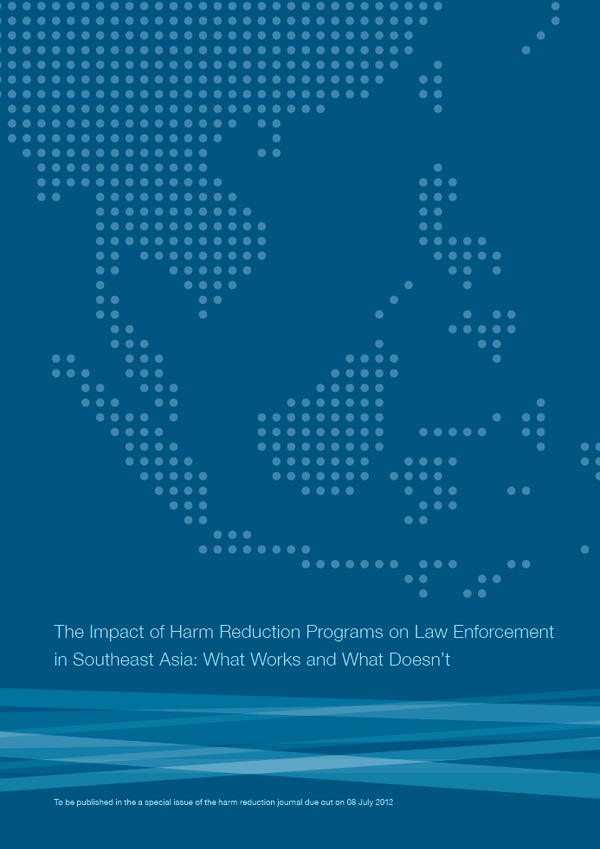The Impact of Harm Reduction on Law Enforcement in Southeast Asia
Ever since HIV emerged, policing has been blamed for creating obstacles to access by affected communities to prevention programmes primarily intended for their benefit. Yet, in almost all Southeast Asian nations, ground-breaking harm reduction projects have been tolerated even though they were not entrenched in, or were prohibited by policies and laws. The tolerance which benefited a number of these projects, as fragile, unpredictable and subjected to repeated setbacks as it was, has allowed projects to gather the evidence supporting harm reduction approaches, and, combined with international advocacy, to persuade policy makers that it was time for a change.
Drawing from selected Southeast Asian country case-studies, this very timely Special Issue takes a pragmatic look at opportunities and barriers to effect this change. Specifically, it examines some of the factors that have determined the conflictual relationship between law enforcement and the protection of public health. It suggests that policing, when well conceived and implemented, actually constitutes a largely untapped resource in HIV prevention benefiting substance users and the rest of the population. As several articles in this Issue underscore, progress in this direction does not merely imply sensitizing law enforcement services to sound public health practices by imposing on them a public health agenda laid out in public health terms they may not be familiar with. It also implies recasting and supporting the role of these services taking into account their obligations, structures, competing priorities, accountability, cultural specificity and the social context within which they operate. Several of these factors of change, as well as the required caution and the associated risks in acting on them, are invoked in this excellent collection of articles, in the hope of constructing a new understanding of how policing must contribute to, rather than hamper, the prevention of HIV transmission through IDU. Borrowing from Jawaharlal Nehru: “The policy of being too cautious is the greatest risk of all.”
Keep up-to-date with drug policy developments by subscribing to the IDPC Monthly Alert.
